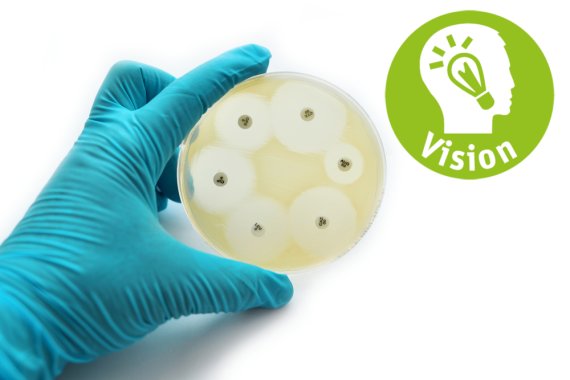© Shutterstock
What makes this finding so remarkable?
‘Most antibiotics were discovered in the 1950s when soil bacteria were found to be a rich source of natural products with antibacterial activity. But in the last 30 years only a few new classes have entered the market. Many organisms only produce antibiotics under specific conditions, in competition with other organisms for example, and not in laboratory cultures. This makes it impossible to test their antibiotic potential. In this study the researchers found a new class of antibiotics without having to culture the bacteria that naturally produce them. They did this by extracting DNA from these bacteria, and then using other easily cultured micro-organisms as factories to produce the antibiotics.’

Jerry Wells, professor Host-Microbe Interactomics.
What makes this new antibiotic promising?
Malacidine was used in this study to treat surgical wounds infected with multi-resistant bacteria in rats. In humans, these kinds of wound infections are hard to treat in hospital. It is not yet known if these drugs will be safe and effective in humans but there is clear potential. That is very good news, even though the malacidines were not effective against gram-negative bacteria, for which we urgently need new treatments for multi-drug-resistant strains.’
Should we revisit nature in the search for new antibiotics?
This study shows that there are still potential new antibiotics to be discovered in nature. Many of the antibiotics discovered in the past came from organisms such as bacteria and fungi in the soil. Natural antibiotics are difficult and very costly to produce synthetically, due to their chemical complexity.’

